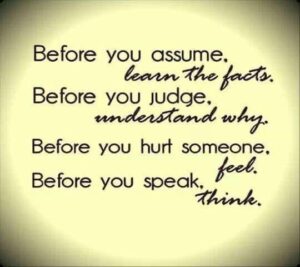Seller: “Here we are, trying to get our services, product or whatever we are selling over the table, so our clients can buy it, and of course, keeps on buying it for a long time.”
Buyer: “We are making sure, that we set up a procedure, to secure we meet our own goals, and that we get what we want, at a price we can accept, with a content we need.”
In many cases there can be a lot of work and time spent, by both sides, before they get to the point where a client decides to pursue any product or services.
Dependable on who the clients are and how big they are, there is usually a set of rules that has to be applied before they can proceed in their common endeavor.
In some cases, a seller will get directed to a dead end, and in some other cases they will get in contact with a decision maker that will keep them at bay, by a set of engagement rules.
In my line of work, I met a lot of people on both sides of the table, I often also train and consult on both sides of the table, and in many cases I can relate to both sides point of view.
Over the years you also learn to take into consideration what people say, think and what the actual agenda is, or if they have a hidden agenda.
It also have to do with how they have been treating each other over the years, and what praxis that have established between them.
In some cases, I agree, in other I don’t, that’s why I have to stay neutral, and as a consultant give them an outside view on the matter.
So, if there is a harsh reaction on either side of the table, start by asking yourself why, is it an act, is it because something you have done, or is it a consequence of earlier encounters?
My point is, try to look beyond the situation and explore the reason to their behavior, because in many cases it is not without cause or reason.

Even as an act it has its source, the reason, as in many cases, is because it has been successful, or at least given some benefits worth pursuing.
In other cases, it can be a consequence due to earlier encounters with you, or other persons and companies.
Trust me, in most cases, it’s a behavior that can be traced, one way or the other, in history and that can be exploited or treated, if you know what you are doing.
If you are to blame, it will come with a cost, if you are not, it can help you become a preferred partner, if you are playing your cards right.
If your world is only about handling or responding to RFP, RFI, excel sheets, tenders, quotas, etc, there is a way around that too, a more difficult one, but still a way well worth pursuing.
So, the next time you have an important decision to make, either as a buyer or seller, take a moment and reconsider, if it would benefit the outcome by doing it in a different way.
Especially if the outcome the last time wasn’t as great as you expected, after all, we can see in our statistics that most deals are not to either or both sides satisfaction.
In most cases you get what you deserve, a consequence of your skill and experience and the rules of engagement, rules put up by either side, for a reason.
Christopher Bell Blomquist Consulting
Managing Director
Lead Negotiator Consultant
Scotwork Sweden.





